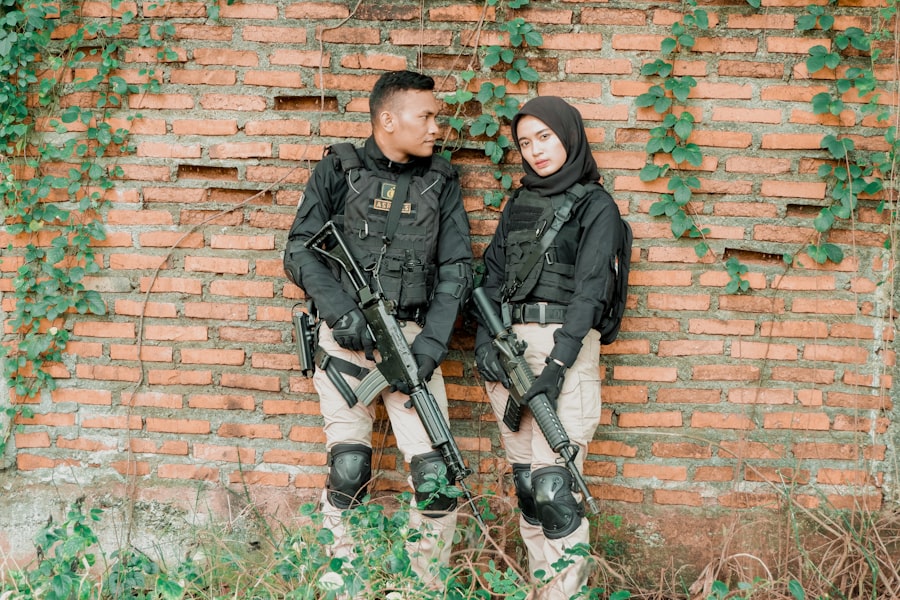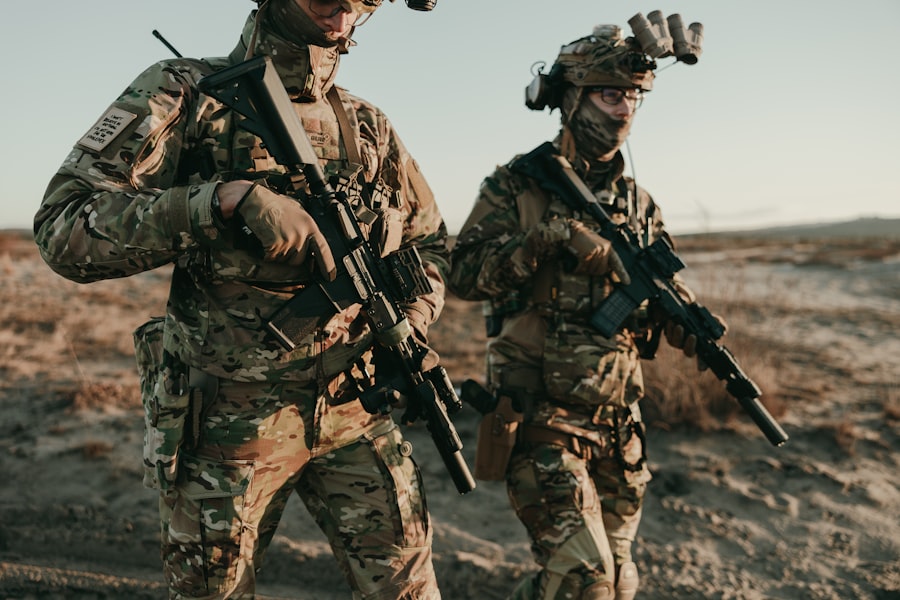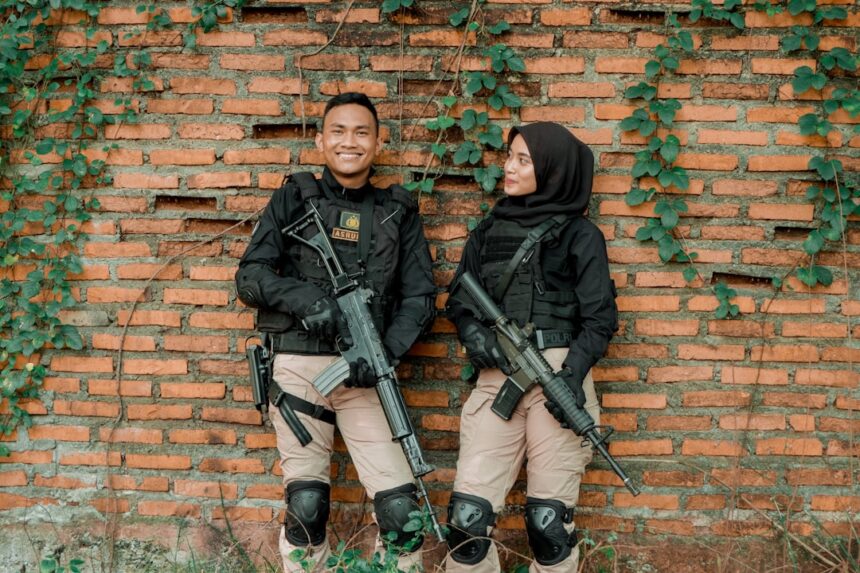In recent years, the landscape of conflict in Africa has witnessed a significant transformation, marked by the emergence and proliferation of mercenary companies. These private military firms have gained traction as non-state actors, often stepping into roles traditionally held by national armies. The rise of these companies can be attributed to a confluence of factors, including the increasing instability in various regions, the weakening of state military capabilities, and the growing demand for security services.
As governments grapple with internal strife, insurgencies, and external threats, they have turned to mercenaries as a viable alternative to bolster their military efforts. The trend has been particularly pronounced in countries rich in natural resources, where the stakes are high and the potential for profit attracts both local and foreign mercenary firms. Nations such as Libya, South Sudan, and the Central African Republic have become hotspots for these companies, which often operate with little oversight or accountability.
The allure of quick financial gain, coupled with the relative ease of recruitment and deployment, has led to a surge in mercenary activity across the continent. This rise not only reflects the changing nature of warfare but also raises critical questions about sovereignty, legality, and the ethical implications of employing private military forces.
Key Takeaways
- Mercenary companies have increasingly become active players in African conflicts, influencing regional stability.
- Their involvement raises significant ethical and legal questions regarding sovereignty and human rights.
- Foreign powers often support or exploit mercenary groups to advance their strategic interests in Africa.
- Economic motivations drive both the recruitment of mercenaries and their continued presence on the continent.
- The international community remains divided on how to effectively regulate and respond to mercenary activities in Africa.
The Role of Mercenaries in African Conflicts
Mercenaries have played multifaceted roles in African conflicts, often acting as force multipliers for governments or factions engaged in warfare. Their involvement can range from direct combat to training local forces, providing logistical support, and securing vital infrastructure. In many instances, these companies have been contracted to protect valuable resources such as oil fields, mines, and transportation routes, which are frequently targeted by insurgents or rival factions.
By offering specialized skills and advanced weaponry, mercenaries can significantly enhance the operational capabilities of their clients. However, the presence of mercenaries can also exacerbate existing tensions within conflict zones. Their motivations are often profit-driven rather than ideologically aligned with the local populace, leading to a disconnect between their actions and the needs of the communities they operate within.
This dynamic can result in increased violence and instability, as mercenaries may engage in aggressive tactics to achieve their objectives. Furthermore, their involvement can complicate peace negotiations and undermine efforts to establish lasting resolutions to conflicts, as local actors may view them as foreign invaders rather than legitimate partners in security.
The Controversy Surrounding the Use of Mercenaries in Africa

The use of mercenaries in Africa is fraught with controversy, raising significant ethical and legal questions. Critics argue that the employment of private military firms undermines state sovereignty and accountability. When governments outsource military functions to mercenaries, they may evade responsibility for human rights violations or war crimes committed by these forces.
This lack of accountability can lead to a culture of impunity, where mercenaries operate without fear of repercussions for their actions. Moreover, the presence of mercenaries can further entrench existing power dynamics and inequalities within societies. Often, these companies are funded by foreign interests or wealthy elites who may not prioritize the welfare of local populations.
This can create a perception that mercenaries are merely tools for exploitation rather than legitimate actors in conflict resolution. As a result, their involvement can fuel resentment among local communities and contribute to a cycle of violence that is difficult to break.
The Impact of Mercenaries on African Societies
| Metric | Description | Impact on African Societies |
|---|---|---|
| Number of Mercenary Groups Active | Estimated count of mercenary groups operating in Africa (2000-2023) | Increased from 5 to over 20, contributing to regional instability |
| Conflict Duration | Average length of conflicts involving mercenaries (in years) | Extended by 30-50% due to mercenary involvement |
| Civilian Casualties | Estimated increase in civilian deaths linked to mercenary activities | Rise by approximately 15-25% in affected regions |
| Economic Disruption | Percentage decline in local economic activity during mercenary-involved conflicts | Decline of 20-40%, especially in mining and agriculture sectors |
| Displacement | Number of internally displaced persons (IDPs) due to mercenary-related violence | Millions displaced, with some regions seeing up to 10% population displacement |
| Government Stability | Frequency of government changes or coups linked to mercenary support | Increased by 2-3 times in countries with active mercenary presence |
| Human Rights Violations | Reported incidents involving mercenaries (torture, extrajudicial killings) | Significant increase, with many documented abuses in conflict zones |
The impact of mercenaries on African societies is profound and multifaceted. On one hand, they can provide essential security services that help stabilize regions plagued by violence and unrest. In some cases, their presence has allowed for the protection of critical infrastructure and resources, enabling economic activities to resume in areas previously deemed too dangerous for investment.
This can lead to short-term benefits for local economies and create jobs in sectors related to security and logistics. On the other hand, the long-term consequences of mercenary involvement can be detrimental to social cohesion and trust within communities. The aggressive tactics employed by some mercenary firms can lead to civilian casualties and displacement, further exacerbating existing grievances among local populations.
This dynamic can hinder the development of robust local institutions capable of addressing security challenges independently.
The Legal and Ethical Considerations of Hiring Mercenaries in Africa
The legal framework governing the use of mercenaries in Africa is complex and often ambiguous. International law prohibits the recruitment and use of mercenaries under various treaties and conventions; however, enforcement remains a significant challenge. Many African nations have laws regulating private security companies but may lack the capacity or political will to enforce these regulations effectively.
As a result, mercenary firms often operate in a legal gray area, exploiting loopholes to continue their activities without oversight. Ethically, the hiring of mercenaries raises questions about the moral responsibilities of governments and corporations involved in such arrangements. The prioritization of profit over human rights considerations can lead to grave consequences for affected populations.
Furthermore, the lack of transparency surrounding contracts with mercenary firms complicates efforts to hold parties accountable for their actions. As awareness grows regarding the implications of employing private military forces, there is an increasing call for stricter regulations and ethical guidelines governing their use.
The Influence of Foreign Powers on the Use of Mercenaries in Africa

Foreign powers have played a significant role in shaping the landscape of mercenary activity in Africa. Geopolitical interests often drive external actors to support or engage with mercenary firms operating within specific regions. For instance, countries seeking access to valuable resources may fund or facilitate the deployment of mercenaries to protect their investments or influence local politics.
This involvement can create a complex web of alliances and rivalries that further complicates existing conflicts. Moreover, foreign powers may leverage mercenary companies as a means to project military influence without committing conventional forces. This strategy allows them to maintain plausible deniability while pursuing their interests on the continent.
However, such interventions can lead to unintended consequences, including prolonged conflicts and increased instability. The interplay between foreign interests and local dynamics underscores the need for a nuanced understanding of how external influences shape the role of mercenaries in African conflicts.
The Recruitment and Training of Mercenaries in Africa
The recruitment and training processes for mercenaries in Africa are often shrouded in secrecy but typically involve targeting individuals with military backgrounds or specialized skills. Many mercenary firms actively seek out former soldiers from national armies or elite units who possess combat experience and tactical knowledge. These individuals are often attracted by lucrative financial incentives and opportunities for adventure in conflict zones.
Training programs for mercenaries vary widely depending on the firm and its operational objectives. Some companies offer rigorous training regimens that emphasize combat readiness, while others may focus on specific skills such as logistics or intelligence gathering. The lack of standardized training protocols raises concerns about the effectiveness and professionalism of these forces.
Additionally, the recruitment process may exploit vulnerable populations seeking economic opportunities, leading to ethical dilemmas regarding consent and exploitation.
The Economic Incentives for Mercenaries in Africa
Economic incentives play a crucial role in driving individuals to become mercenaries in Africa. The promise of substantial financial rewards often outweighs the risks associated with operating in conflict zones. For many recruits, particularly those from economically disadvantaged backgrounds, joining a mercenary firm represents an opportunity for upward mobility that may not be available through traditional employment avenues.
Moreover, the demand for security services continues to grow as instability persists across various regions. This demand creates a competitive market for mercenary firms, allowing them to offer attractive compensation packages to potential recruits. However, this economic model raises questions about sustainability; as conflicts evolve or diminish, so too may the opportunities for mercenaries.
The cyclical nature of conflict-driven economies can lead to volatility for those reliant on mercenary work as a primary source of income.
The Future of Mercenary Activity in Africa
The future of mercenary activity in Africa remains uncertain as various factors converge to shape its trajectory. On one hand, ongoing conflicts and instability may continue to drive demand for private military services as governments seek quick solutions to security challenges. As long as state militaries struggle with capacity issues or face internal dissent, mercenaries may remain an attractive option for bolstering security efforts.
Conversely, growing international scrutiny regarding human rights abuses associated with mercenary operations could lead to increased regulation and oversight. As awareness rises about the implications of employing private military forces, there may be calls for reforms that prioritize accountability and ethical considerations over expediency. The evolution of public sentiment regarding mercenaries will likely play a pivotal role in determining their future presence on the continent.
The Relationship Between Mercenaries and African Governments
The relationship between mercenaries and African governments is often characterized by pragmatism rather than ideological alignment. Governments facing internal or external threats may view mercenary firms as necessary allies in their quest for stability and security. This transactional relationship can lead to mutually beneficial arrangements where governments gain immediate military support while mercenaries secure lucrative contracts.
However, this reliance on private military forces can create tensions within governments themselves. National militaries may perceive mercenaries as competitors or threats to their authority, leading to friction between state forces and contracted personnel. Additionally, political leaders may face backlash from citizens who view the hiring of foreign fighters as an abdication of responsibility or an affront to national sovereignty.
Balancing these dynamics is crucial for governments seeking effective security solutions while maintaining legitimacy among their constituents.
The International Community’s Response to the Use of Mercenaries in Africa
The international community’s response to the use of mercenaries in Africa has been mixed, reflecting varying perspectives on sovereignty, security, and human rights. While some nations advocate for stricter regulations governing private military firms through international treaties and conventions, others prioritize national interests that may conflict with these efforts. This divergence complicates collective action aimed at addressing the challenges posed by mercenary activity.
Human rights organizations have been particularly vocal in condemning abuses associated with mercenary operations, calling for greater accountability and transparency from both governments hiring these forces and the firms themselves. However, enforcement mechanisms remain weak at best; without robust international frameworks or political will among member states, efforts to curb mercenary activity may fall short. As global awareness grows regarding the implications of employing private military forces in conflict zones, there is hope that concerted action will emerge to address these pressing issues effectively.
In conclusion, the rise of mercenary companies in Africa presents a complex interplay between security needs, economic incentives, ethical considerations, and geopolitical influences. As these dynamics continue to evolve, it is imperative for stakeholders—governments, civil society organizations, and international actors—to engage critically with the implications of employing private military forces within African contexts.
Mercenaries for hire in Africa have become a significant topic of discussion, particularly in light of their impact on regional conflicts and security dynamics. For a deeper understanding of this issue, you can explore the article on mercenaries at In the War Room, which delves into the complexities surrounding the use of private military contractors in various African nations. This resource provides valuable insights into the motivations behind hiring mercenaries and the implications for local governance and international relations.
WATCH THIS! The Secret War for Africa’s Gold: How Private Armies Fund Global Conflict
FAQs
What are mercenaries?
Mercenaries are individuals who are hired to take part in armed conflicts or military operations for financial gain rather than political or ideological reasons. They are often contracted by governments, private companies, or other entities.
Why are mercenaries hired in Africa?
Mercenaries are hired in Africa for various reasons, including providing security services, supporting government forces in conflicts, protecting natural resources, and assisting in counter-insurgency operations. Some countries or groups may lack sufficient military capacity and thus contract mercenaries.
Are mercenaries legal in Africa?
The legality of mercenary activities varies by country and is often regulated by international law. The United Nations Mercenary Convention prohibits the recruitment, use, financing, and training of mercenaries, but not all African countries have ratified this treaty. National laws also differ widely.
What impact do mercenaries have on conflicts in Africa?
Mercenaries can influence conflicts by providing military expertise and manpower, which may alter the balance of power. However, their involvement can also exacerbate violence, undermine state sovereignty, and complicate peace processes.
Who typically hires mercenaries in Africa?
Mercenaries in Africa are often hired by governments, rebel groups, private corporations (especially in mining and oil sectors), and sometimes foreign interests seeking to protect investments or influence regional dynamics.
What are some well-known mercenary groups operating in Africa?
Some notable private military companies and mercenary groups that have operated in Africa include Executive Outcomes, Wagner Group, and various smaller private security firms. Their roles and reputations vary widely.
How do mercenaries differ from private military contractors?
While both mercenaries and private military contractors (PMCs) provide military services for payment, PMCs typically operate under formal contracts with governments or corporations and often adhere to legal and regulatory frameworks. Mercenaries are generally considered irregular combatants without official state affiliation.
What risks are associated with hiring mercenaries in Africa?
Risks include potential human rights abuses, lack of accountability, escalation of conflicts, undermining of legitimate state authority, and negative impacts on local populations and regional stability.
How does the international community view mercenary activity in Africa?
The international community generally condemns mercenary activity due to concerns over legality, human rights, and conflict escalation. Various international laws and UN resolutions aim to restrict or regulate mercenary involvement in armed conflicts.
Can mercenaries influence political outcomes in African countries?
Yes, mercenaries can influence political outcomes by supporting certain factions or governments militarily, which may affect power dynamics, election processes, or regime stability. However, their involvement often raises ethical and legal questions.



